#research articles
Explore tagged Tumblr posts
Text
Beautiful view on the water canal from my home office today.
Calm place for some scientific writing. I am working on a grant application and an article with my latest findings.

#home office#working from home#science#women in science#research#original content#postdoc#stem#biophysics#physics#academia#biology#academic writing#research articles#calm place#relaxing
3 notes
·
View notes
Text
One thing that has really struck me doing research into queer studies is just how much is on how being queer effects the people around you and not on how others treatment of you being queer effects you
There's mountains of research on the children raised by queer people and how being the parent of a trans child affects the parent and so little research on what it's like being a queer parent and being a trans child of adult in comparison
It makes me sad
6 notes
·
View notes
Text
Breaking news: local girl has run out of books to read and now shes very upset :(
3 notes
·
View notes
Text
DO NOT DO THIS!!!
If a website has a paywall, like New York Times, DO NOT use the ctrl+A shortcut then the ctrl+c shortcut as fast as you can because then you may accidentally copy the entire article before the paywall comes up. And definitely don't do ctrl+v into the next google doc or whatever you open because then you will accidentally paste the entire article into a google doc or something!!!! I repeat DO NOT do this because it is piracy which is absolutely totally wrong!!!
152K notes
·
View notes
Text
Observation types and record-keeping methods
Observation as a research method has to be methodical, narrowly focused and well-documented with a clear goal in mind. It needs to go through the standard processes of validity, reliability, and accuracy tests like any other research technique. The observer has to be aware of exactly what to watch out for and notice. The validity and reliability of observations are enhanced when the same observer…
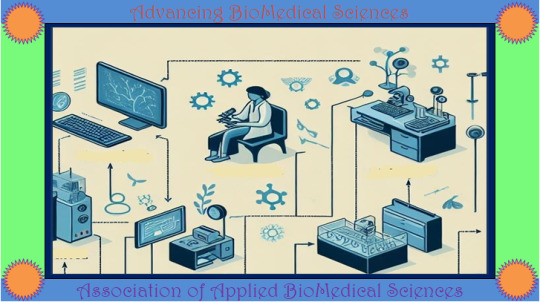
View On WordPress
0 notes
Text
By the way, I would literally bet money that we're going to successfully keep global warming below 2 degrees celsius.
Would I bet my whole savings on it? No, not yet. But the way the data is trending, in two or three years, I very well might.
#good numbers keep going up at a rate that is drastically higher than expected#and that rate is going to keep increasing#metaphorically ofc I don't gamble with that kind of money lol#but seriously#I WOULD bet money that we will keep the increase under two degrees celsius#based on all the news and articles I've seen and all the research I've done#SHOUTOUT TO EXPONENTIAL CURVES#COME SAVE OUR ASSES EXPONENTIAL CURVES#lay translation of that is#not news#climate change#climate anxiety#me#climate hope#global warming
4K notes
·
View notes
Text
i hate paywalls so much. you know what i hate even more? not even being able to buy the perfect article but have to be in a SPECIFIC INSTITUTION to have to get it. there’s no way for me to even access this.
1 note
·
View note
Text
People when a character is aromantic or aromantic coded: Wowie! They’re aroACE! Because they aren’t interested in romance! Look at how aroace they are!
People when a character is aroace or aroace coded: Isn’t it cool that this character is asexual? Asexual icon! They’re such great asexual representation :)
#aro#aromantic#ace#asexual#aroace#alloaro#it feels like there’s this weird mindset of#if a character is aro then they MUST be ace too#and if they’re aroace then the ace part is all that matters!#and of course aplatonicism is never even mentioned as a possibility in fandom spaces (even with characters like Saiki who is apl coded af)#hell. even with real life people who have come out as aromantic#if someone comes out as aromantic they’re assumed to be asexual as well#and if someone is openly aroace it’s very common that people emphasize the ace part over the aro part#and while I get that some people do talk more about their asexuality than their aromanticism#it’s still weird to me that like#for example#Yasmin Benoit is one of the most prolific aromantic activists AND one of the most prolific asexual activists#yet I rarely ever see people mention that she’s aromantic or aroace. Everyone always just says “oh she’s asexual” and leaves it at that#her aromantic activism seems to just get ignored even with how much of it she’s done#when trying to find news sources talking about aromanticism for a research project about half of them were interviews#with Yasmin Benoit! she’s done so much work for the aromantic community#yet even in her Wikipedia article which describes her as an “asexual and aromantic activist” in the very first sentence#the section on her activism doesn’t include the words aromantic or aromanticism even ONCE.#like. yeah she does emphasize her asexuality a lot more than her aromanticism. but her aromantic activism should be acknowledged too
997 notes
·
View notes
Text
Not bad...
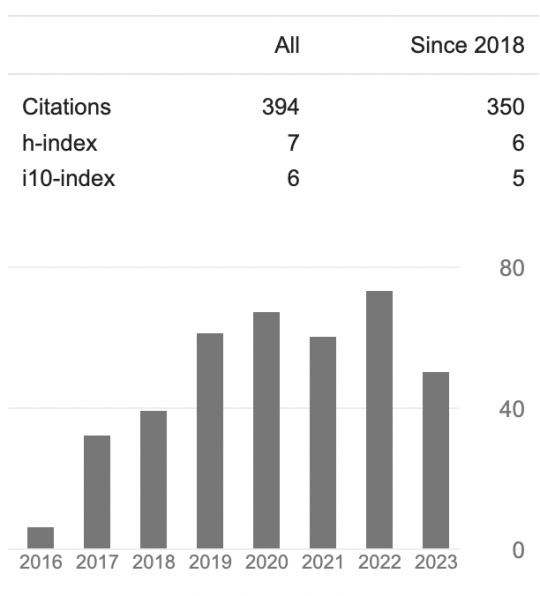
Almost 80 citations of my research articles in the last year... I would say it’s not bad. It eases a bit my feeling of “I don’t know what I am doing here!” that I sometimes have.
#postdoc#research#science#output#research articles#women in science#physics#biophysics#life sciences#chemistry#citations#achievements#impostor syndrome#bright future#google scholar#original content
10 notes
·
View notes
Text
UPDATE: a judge blocked this for now: https://apnews.com/article/donald-trump-pause-federal-grants-aid-f9948b9996c0ca971f0065fac85737ce
—
This is a huge fucking problem.
These grants account for more than 10% of the GDP. 3 trillion – wiped out.
From the article:
The funding freeze by the Republican administration could affect trillions of dollars and cause widespread disruption in health care research, education programs and other initiatives. Even grants that have been awarded but not spent are supposed to be halted.
“The use of Federal resources to advance Marxist equity, transgenderism, and green new deal social engineering policies is a waste of taxpayer dollars that does not improve the day-to-day lives of those we serve,” said a memo from Matthew Vaeth, the acting director of the Office of Management and Budget.
(Use of that language, that entire segment, "Marxist equity ... policies" is disgusting. If you think you're wary of propaganda and you do not see the enormous red flags in that statement, I do not know how to help you. If you're not beyond it, maybe pick up a history book — the 1930s are particularly pertinent.)
The average person may not understand just how far-reaching this is, how many programs and services are covered by grants, that regular people rely on all across the US and globally.
Not to mention how many people just had their livelihood demolished.
Researchers, for example, spend months and years writing grant proposals, their work and income relies on these cycles. So even if this is "temporary", a lot of people are going to struggle.
This is not just a few people in lab coats somewhere, working on something you don't care about. Government-funded research is released to the public, since we paid for it, and is very typically about things the public will want to know:
Is this product safe or deadly?
Is this medication actually a "wonder drug" or does it harm you in the long term?
Is this pollution going to affect us long-term?
Etc.
Seriously, if you wanted any of those things to get better ��� you wanted lower rates of cancer and other deadly and disabling disease? You worry about trusting public health guidelines because you're concerned about bias and vested interests in research? You want "small government" that doesn't interfere with people's bodies based on a small group's religious dogma, with zero basis in factual, verifiable reality?
Then you should have voted to keep this administration out of government.
Because their idea — which is outlined in Project 2025, and they are following it closely — is that research will be required to rely 50% on private funding.
Guess what private funding introduces a ton more of: private interests, private bias. The interests of stakeholders who do not give a shit if you are being killed by their product, as long as line goes up in the short run.
But even beyond scientific researchers — and those who rely on that work, e.g. journalists, science communicators, public health advocates, scientific artists —
grants fund others like: teachers, police, farmers, women's and homeless shelters, native orgs, medical workers, and on the list goes.
All pending "review" by a thoroughly unqualified gang of convicted criminals and cronies.
656 notes
·
View notes
Text

Ask and ye shall receive...
For context y'all I wrote a 30+ page thesis about vampires, a piece I've been uhhh more than a little obsessed with for the last little bit. But it's done now!! And it's exciting!
Anyway I DID manage to fit "lizard fashion" into it on page 31 (footnote) and if you find every vampire pun I made, you get a prize (your own self satisfaction and my unending delight)
#dracula#dracula daily#re: dracula#vampire thesis#wwdits movie#wwdits#what we do in the shadows#interview with the vampire#iwtv#amc iwtv#iwtv book#vampire#vampires#vampire aesthetic#dark academia#academic research#academic article
217 notes
·
View notes
Text
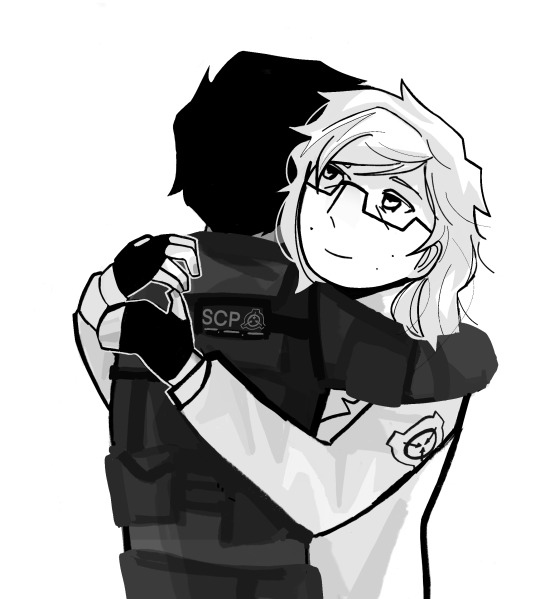
“he hugged James, a strong MTF agent in the arms of a nimble researcher, but James patted him on the back and told him it was okay.”
#scp#scp foundation#scp fandom#scp fanart#my art#james talloran#draven kondraki#me when the scp article has hidden text inside the source code#talloraven#researcher talloran
176 notes
·
View notes
Text
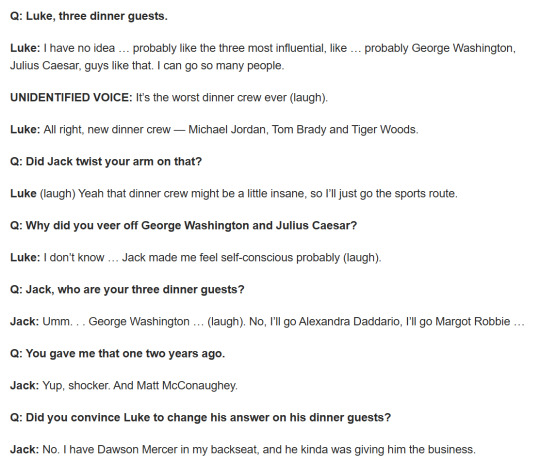
luke hughes wants to dine with julius caesar
#this is me highkey realizing i should've done more interview research for my tie#oh well#i was right anyways#not luke feeling self-concious about his history dinner picks oh luke it's ok we know you're a nerd#like pleaseeeeee#once again i love being right#luke hughes#this is an old article btw not new#my tie fic
217 notes
·
View notes
Text

- research update -
#colress#pokemon bw#colress my beloved 🫶#colress pokemon#achroma#unova region#magnezone#magnemite#i have two headcanons for this man#one is that he learned multiple languages just so he can read more research articles#the other is that he blasts lady gaga in the lab while working
235 notes
·
View notes
Text
Do Your Research
This phrase is regularly thrown around writeblr and for good reason. It's important to research what you are writing about to know what to include, what can be fudged, and how to depict whatever you're writing. I see "do your research" most thrown around by well-meaning and highly traditionally educated writers. It's solid advice, after all!
But how do you research?
For those writers who don't already have the research skills necessary to write something comfortably already downloaded into your brain, I put this guide together for you.
Where do I even start?
It's a daunting task, research. But the best place to start is with the most basic, stupidest question you can think of. I'm going to talk about something that I already know a lot about: fighting.
When researching fight scenes, a great way to start is to look up what different weapons are. There are tons out there! So ask the stupid questions. What is a sword? What is a gun? How heavy are they?
Google and Wikipedia can help you a lot with these basic-level questions. They aren't great sources for academic articles, but remember, this is fiction. It doesn't need to be perfect, and it doesn't need to be 100% accurate if you don't want it to be. But knowing what is true to life will help you write well. Just like knowing the rules of writing will help you break them.
You may find in your basic research sweep that you have a lot more specific questions. Write them all down. It doesn't matter if they seem obvious. Write them down because they will be useful later.
How To Use Wikipedia Correctly
Wikipedia is a testament to cooperative human knowledge. It's also easy to edit by anonymous users, which means there is a lot of room for inaccuracies and misleading information. Wikipedia is usually pretty good about flagging when a source is needed or when misleading language is obvious, but Wikipedia itself isn't always the most accurate or in-depth source.
Wikipedia is, however, an excellent collection of sources. When I'm researching a subject that I know nothing about, say Norse mythology, a good starting point is the Wikipedia page for Odin. You'll get a little background on Odin's name and Germanic roots, a little backstory on some of the stories, where they appear, and how they are told.
When you read one of the sentences, and it sparks a new question, write the question down, and then click on the superscript number. This will take you directly to the linked source for the stated fact. Click through to that source. Now you have the source where the claim was made. This source may not be a primary source, but a secondary source can still lead you to new discoveries and details that will help you.
By "source-hopping," you can find your way across the internet to different pieces of information more reliably. This information may repeat itself, but you will also find new sources and new avenues of information that can be just as useful.
You mean I don't need a library?
Use your library. Libraries in many parts of the US are free to join, and they have a wealth of information that can be easily downloaded online or accessed via hardcopy books.
You don't, however, need to read every source in the library for any given topic, and you certainly don't need to read the whole book. Academic books are different from fiction. Often their chapters are divided by topic and concept and not by chronological events like a history textbook.
For example, one of my favorite academic books about legislative policy and how policy is passed in the US, by John Kingdon, discusses multiple concepts. These concepts build off one another, but ultimately if you want to know about one specific concept, you can skip to that chapter. This is common in sociological academic books as well.
Going off of my Norse Mythology example in the last section, a book detailing the Norse deities and the stories connected to them will include chapters on each member of the major pantheon. But if I only care about Odin, I can focus on just the chapters about Odin.
Academic Articles and How To Read Them
I know you all know how to read. But learning how to read academic articles and books is a skill unto itself. It's one I didn't quite fully grasp until grad school. Learn to skim. When looking at articles published in journals that include original research, they tend to follow a set structure, and the order in which you read them is not obvious. At all.
Start with the abstract. This is a summary of the paper that will include, in about half a page to a page, the research question, hypothesis, methods/analysis, and conclusions. This abstract will help you determine if the answer to your question is even in this article. Are they asking the right question?
Next, read the research question and hypothesis. The hypothesis will include details about the theory and why the researcher thinks what they think. The literature review will go into much more depth about theories, what other people have done and said, and how that ties into the research of the present article. You don't need to read that just yet.
Skim the methods and analysis section. Look at every data table and graph included and try to find patterns yourself. You don't need to read every word of this section, especially if you don't understand a lot of the words and jargon used. Some key points to consider are: qualitative vs. quantitative data, sample size, confounding factors, and results.
(Some definitions for those of you who are unfamiliar with these terms. Qualitative data is data that cannot be quantified into a number. These are usually stories and anecdotes. Quantitative data is data that can be transferred into a numerical representation. You can't graph qualitative data (directly), but you can graph quantitative data. Sample size is the number of people or things counted (n when used in academic articles). Your sample size can indicate how generalizable your conclusions are. So pay attention. Did the author interview 300 subjects? Or 30? There will be a difference. A confounding factor is a factor that may affect the working theory. An example of a theory would be "increasing LGBTQ resources in a neighborhood would decrease LGBTQ hate crimes in that area." A confounding factor would be "increased reporting of hate crimes in the area." The theory, including the confounding factor, would look like "increasing LGBTQ resources in a neighborhood would increase the reporting of hate crimes in the area, which increases the number of hate crimes measured in that area." The confounding factor changes the outcome because it is a factor not considered in the original theory. When looking at research, see if you can think of anything that may change the theory based on how that factor interacts with the broader concept. Finally, the results are different from the conclusions. The results tell you what the methods spit out. Analysis tells you what the results say, and conclusions tell you what generalizations can be made based on the analysis.)
Next, read the conclusion section. This section will tell you what general conclusions can be made from the information found in the paper. This will tell you what the author found in their research.
Finally, once you've done all that, go back to the literature review section. You don't have to read it necessarily, but reading it will give you an idea of what is in each sourced paper. Take note of the authors and papers sourced in the literature review and repeat the process on those papers. You will get a wide variety of expert opinions on whatever concept or niche you're researching.
Starting to notice a pattern?
My research methods may not necessarily work for everybody, but they are pretty standard practice. You may notice that throughout this guide, I've told you to "source-hop" or follow the sources cited in whatever source you find first. This is incredibly important. You need to know who people are citing when they make claims.
This guide focused on secondary sources for most of the guide. Primary sources are slightly different. Primary sources require understanding the person who created the source, who they were, and their motivations. You also may need to do a little digging into what certain words or phrases meant at the time it was written based on what you are researching. The Prose Edda, for example, is a telling of the Norse mythology stories written by an Icelandic historian in the 13th century. If you do not speak the language spoken in Iceland in 1232, you probably won't be able to read anything close to the original document. In fact, the document was lost for about 300 years. Now there are translations, and those translations are as close to the primary source you can get on Norse Mythology. But even then, you are reading through several veils of translation. Take these things into account when analyzing primary documents.
Research Takes Practice
You won't get everything you need to know immediately. And researching subjects you have no background knowledge of can be daunting, confusing, and frustrating. It takes practice. I learned how to research through higher formal education. But you don't need a degree to write, so why should you need a degree to collect information? I genuinely hope this guide helps others peel away some of the confusion and frustration so they can collect knowledge as voraciously as I do.
– Indy
#writing advice#writing tips#writing resources#writeblr#amwriting#writblr#writers of tumblr#writers on tumblr#writing help#writing guide#how to research#reading research articles#do some research#do your own research#do your research#research for writers#writing research#writing tip#writing reference#writer tips
2K notes
·
View notes
Text
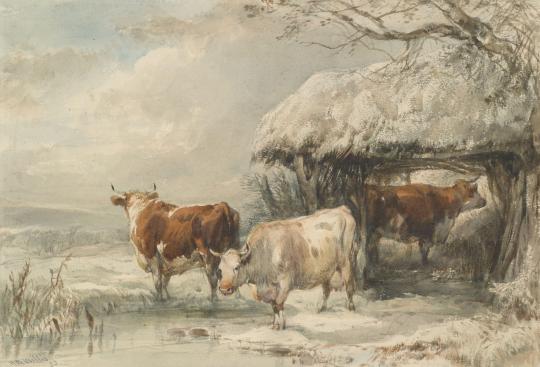
Happy December! ❄️
As the year winds down, it's the perfect time to cozy up with some thought-provoking reads. Whether you're celebrating Solstice, Hanukkah, Kwanzaa, Christmas, or the New Year, our collection of seasonal articles on JSTOR Daily will add a scholarly twist to your holiday traditions.
From the history of holiday cards and the origins of Hanukkah to the Victorian influences on Christmas lore, there’s something here to inspire curiosity and spark conversation. Each story includes free access to supporting academic research on JSTOR, so you can explore these topics in-depth.
Happy reading!
Discover the collection.
🖼 Cows in Winter by Henry Willis, 1853. Watercolour. Museum of New Zealand - Te Papa Tongarewa.
#jstor#jstor daily#research#articles#winter holidays#winter solstice#hanukkah#kwanzaa#christmas#new year
156 notes
·
View notes